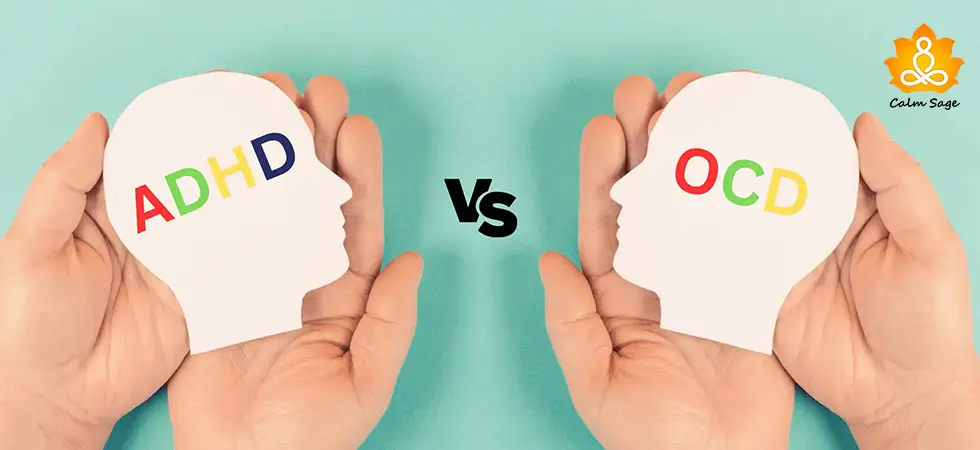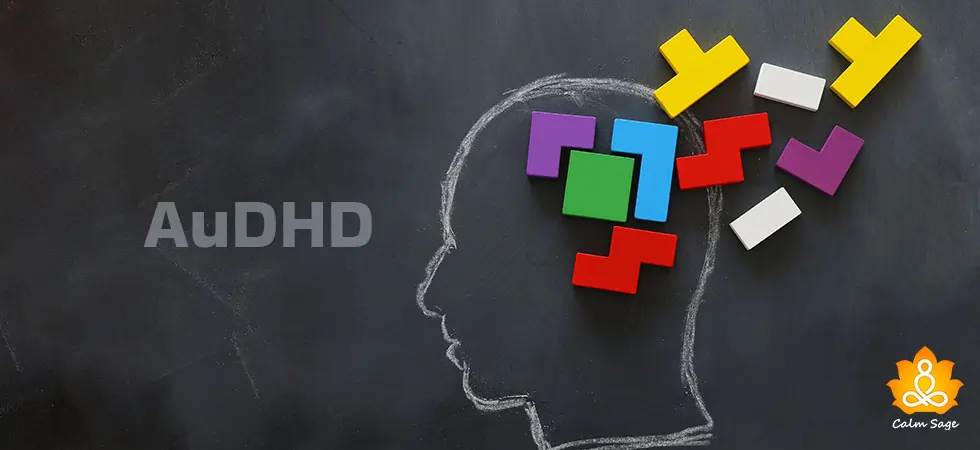Are You an ADHD Night Owl? Read This If You’re More Productive At Night

Oh, the good old days, when staying up all night was all the rage; working on college assignments, binge-watching dramas, cruising with friends on a long ride – those were the days’ worth remembering, right? I have done it all, stayed up all night doing everything but sleeping, and I see its consequences today, too!
For many of you, nighttime is a time when we rest and recharge our bodies and minds, but for others, it’s the prime time for focus and productivity. I’ve been there too; working on my personal projects late in the night because that was the time when no one could distract me from my focus.
Living with ADHD is already a life full of complications, and being focused on your tasks with all you might at night might be counterintuitive, considering ADHD gives you trouble with concentration, but it’s true.
Because of these increased bouts of productivity at night, adults with ADHD become night owls – not by choice, but because of circumstances. There are other compelling reasons why people with ADHD are more productive at night, so why don’t we take a look at them?
Why Are People With ADHD More Productive at Night?
1. No More Distractions:
During the night, the world gets quiet. The constant buzz of day-to-day activities goes away, and there are fewer distractions around vying for attention. The lack of distractions can provide a conducive environment for people with ADHD to concentrate and be more productive.
2. No Hyperactivity:
One of the primary characteristics of ADHD is hyperactivity – a phenomenon that can make it harder for a person to focus and be actually productive during the day. As the night falls, the energy levels tend to naturally drop, allowing you – with ADHD – to use the energy for more productive and focused work.
3. Higher Creativity:
Believe it or not, research shows that people with ADHD show high creativity, especially at night. The nighttime, with its quietness and lack of external stimuli, can become a canvas for creativity. Did you know that many renowned artists, thinkers, and intellectuals were known for their late-night bursts of creativity and inspiration? Well, you can be one too!
4. More Time to Focus:
Adults with ADHD often experience a state of hyperfocus, where they become deeply engrossed in their tasks and forget everything else going on around them – at least for a while. Nighttime, with its calmness, can give them an environment where they can hyperfocus to their heart’s content, making their nights more productive.
5. Lack of External Stimuli:
During the day – whether you have ADHD or not – there are thousands of things and hundreds of expectations to fulfill – which, truly, can become overwhelming for anyone, let alone someone with ADHD. The night offers a reprieve from these pressures and expectations, allowing you to be more relaxed, have a pressure-free mindset, and be more productive.
Being a Night Owl Comes With Sleep Problems Too!
While nighttime can often be a haven for productivity for people with ADHD, it’s important to recognize the downfalls of late-night activities too – sleep problems! The connections between nighttime productivity in ADHD and sleep problems in ADHD can be because of numerous factors such as;
1. Delayed Sleep Phase:
If you live with ADHD, then you may experience delayed sleep, meaning that your natural circadian rhythm is shifted, making it challenging for you to fall asleep at a reasonable hour. This misalignment can disrupt your sleep-wake cycle, contributing to various sleep issues.
2. Stimulant Medications:
If you have ADHD, then you might be prescribed stimulant medications by your healthcare professional to manage your symptoms. These stimulant medications can have a delayed impact on your sleep, making it harder for you to wind down at night.
3. Hyperarousal:
When we talk about ADHD, we often talk about hyperarousal – mentally and physically. This hyperarousal can carry into the night, making it challenging for you to relax, wind down your state of hyperactivity, and sleep.
4. Coping Mechanism:
For many with ADHD, nighttime productivity can be a coping mechanism to manage the challenges they face in their daytime. This, frankly unhealthy coping technique, can contribute to your delayed sleep and even daytime fatigue.
5. Executive Dysfunction:
Working late at night can even worsen ADHD symptoms such as executive dysfunction. Everyone needs to sleep, and having irregular sleep habits can worsen symptoms.
You might become a night owl, have no time or energy for socializing in the daytime, and even become less productive during the day.
How to Be Focused At Night, Even With ADHD?
So, how can you – with ADHD – be focused without compromising your nighttime? Here are some tips!
If you have ADHD, then you might even feel-good working during the night. You might find that you finish your work faster and better! To keep things healthy and from crossing into unhealthy territory, you can avoid social media and doomscrolling. Social media can be an unhealthy distraction and scrolling mindlessly can only affect your productivity and compromise your nighttime.
You can also remove clutter from your work area. This will help you to be less distracted and more focused. You can also work on setting an agenda – a to-do list of sorts – for your evening and how you’ll get your work done.
Also, it is suggested that you pick a timeframe to focus and work diligently. Try not to push up this time frame and finish your work within this self-allotted time. Accept that your nights are the best time to be productive and plan your tasks keeping this in mind.
Before You Retire, Try This!
1. Dim The Light:
Before you go to bed, try to create an environment for sleep. You can do that by dimming your lights as you get ready to sleep. This can mimic a natural decrease in light, signaling to your body and brain that it’s time to sleep and wind down for the day.
2. Disconnect From Tech:
Disconnect from your electronics once you’re ready to wind down for the day. Engage in activities that promote relaxation instead, such as reading a paperback, taking a warm bath, or practicing some nighttime deep breathing. This helps shift the focus from stimuli and encourages a quieter state of mind.
3. Try PMR:
Progressive muscle relaxation is a practice that encourages deliberate tensing and relaxing of muscles. This technique can help release any muscle tension that you’ve been carrying around and evoke a sense of relaxation and calm.
4. Have a Sleep Schedule:
Even if you’re used to working late, try to have a consistent sleep schedule, that is, a regular sleep-wake time, even on your days off. This can help regulate your body’s circadian rhythm and improve sleep quality.
5. Avoid Caffeine:
Before you go to bed and wind down, make sure you avoid caffeine and alcoholic beverages. Try not to consume such products that contain caffeine and alcohol after 4 PM, as these products can worsen your symptoms, especially if you have ADHD or excess energy.
Wrapping Up…
Nighttime is a prime time for many people, but especially for adults with ADHD, to focus and be more productive. The tranquility of the night offers an environment with fewer distractions, high creative bursts, and calm focus. It’s important to find the right balance to avoid possible sleep problems. By understanding the tenuous connection between nighttime productivity and sleep issues, you can incorporate strategies to maximize your focus and also wind down when needed.
All ADHD superheroes, gather around, and put your strengths to your advantage without compromising your well-being!
Did you find this article helpful? Let me know what you think about the connection between nighttime productivity and ADHD in the comments below.
Take Care!




















